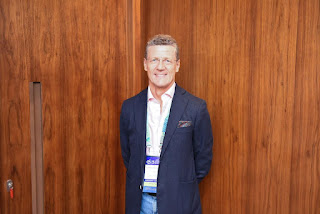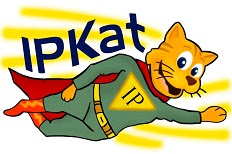As the world becomes increasingly innovative and technology-driven, it becomes more critical for a country to have fast and efficient patent prosecution. In recent years, Brazil has faced challenges in balancing interests in the intellectual property field, especially in the patent sector. Since the beginning of the pandemic, patents have been the focus of controversies and diverging interests, as balancing the legal, social, administrative, economic, and political influences in the Brazilian patent system is arduous.
Regarding the current Brazilian scenario, it is essential to emphasize that the country has been going through several changes, considering the recent government transitions.
One of these changes directly impacted the Brazilian Patent and Trademark Office (BPTO) because said Institute left the former Ministry of Economy and is now part of the Ministry of Development, Industry, Commerce and Services, which consequently generated significant changes in its directors and presidency. The current interim president, Dr Júlio Cesar Moreira (former Patent Director), has worked at BPTO for years and is one of those responsible for the implementations promoting good progress in the patent application prosecution, such as the backlog tackle project. This project defines, for example, the creation of the preliminary official action, which we will discuss below in more detail.
The backlog tackle project
The implementation of the collaborative examination, through the backlog tackle project, aims to reduce the number of pending patent applications substantially by using previously conducted prior art search reports from other patent offices, requesting amendments in the claims or technical arguments that defend the patentability of the invention over the cited prior art. This implementation has significantly improved the application prosecution, avoiding excessive official actions, promoting procedural economy, and reducing the time for resolution of the cases.
A) Preliminary official actions
A good strategy for complying with the preliminary official action is to conform the Brazilian application to an already allowed/granted or considered patentable subject matter of the same patent family. However, it is important to remember the need for adequacy of the amendments to the current legal provisions, such as the normative instructions and examination guidelines for different areas, to avoid related technical official actions. Furthermore, it is essential to take into account the national sovereignty over the examination, established by the Paris Convention (CUP) in its Art. 4 bis (1); therefore, there are no guarantees that the Brazilian patent application will be immediately allowed because it was adapted to an application already granted in another country.
To submit a good argumentation before the BPTO, it is necessary to clearly explain how the technical characteristics of the invention solve the technical problem described. In addition, it is required to indicate the new technical effect achieved and the advantages in relation to the prior art, citing the lines and pages of the specification that contain this information. It is also important to comment on the cited prior art, highlighting the differences between the subject matter of the application and the cited prior art. This information should demonstrate that a person skilled in the art would not have sufficient resources or inspiration to create or achieve the claimed invention based on the cited documents.
B) Divisional applications and PPH agreements
A new practice that is becoming frequent is filing a divisional application at the moment of compliance with the preliminary official action. However, recently in this compliance, there has been a practice of conforming to the granted patent and filing a divisional application with a set of claims identical to the original ones. This practice has resulted in applicants' rejections and abandonments due to the difficulty of overcoming the objections.
In recent years, another relevant implementation was the creation of several diversified types of fast tracks and the BPTO signing PPH agreements with several countries (for more information about the countries, access the link). Accepting a fast track guarantees a reduction in the prosecution time from 10 - 12 years (average time of an application without fast track and not being part of the backlog tackle project) to 3 - 5 years up to the conclusion of the merit examination in the administrative sphere.
C) Article 32 of the IPL: amendments to the applications
In the prosecution of a patent application, a highly discussed point is the legitimacy of article 32 of the Industrial Property Law No. 9,279/1996 (IPL), which establishes that the applicant may proceed with amendments to the application until the request for examination, provided that these are limited to the subject matter initially disclosed in the application.
The examination must be requested within 36 months after the Brazilian or International filing date, and this is a crucial moment to perform amendments to broaden the scope of protection, for instance, increasing categories, moving the place of the characterizing term, changing categories, and others.
Based on the interpretation of the BPTO, established in resolution 93/2013, amendments must be based on the content initially disclosed and, after the request for examination, can only be performed to reduce the scope of protection or correct typographical errors, for example. Thus, discussions to make the BPTO's interpretation more flexible have been taking place in study groups, such as the Intellectual Property Interministerial Group (GIPI), where the applicant can proceed with amendments to broaden the scope of protection after the examination request, for example.
The National Strategy of Intellectual Property (ENPI), created in 2019, has been strengthening its position as a project to harmonize IP policies in the country, which restarted the GIPI as a technical entity with a thematic strategic plan that demonstrates the adequacy of the intellectual property sector to current needs, including the review of procedures.
Comments
It is essential to mention that the backlog tackle project was and continues to be a success in several technical areas, and, as a result, the backlog issue has now been practically solved in some areas and is advancing to end the backlog in others.
Therefore, based on the examples above, it is evident that Brazil is continuously working to become a more economically competitive country and of international interest without ceasing to value its internal innovation policies, yet, knowing its importance for the world's technological development.
Credits:






















